25 Bolivian Foods: Guide to Food in Bolivia (Dishes, Drinks, Desserts)
Traditional Bolivian cuisine centers around corn, potatoes, quinoa, and beans. Meats used include chicken, beef, and pork. Spices vary by region.
If you are hungry for a filling and delicious meal, please keep reading.
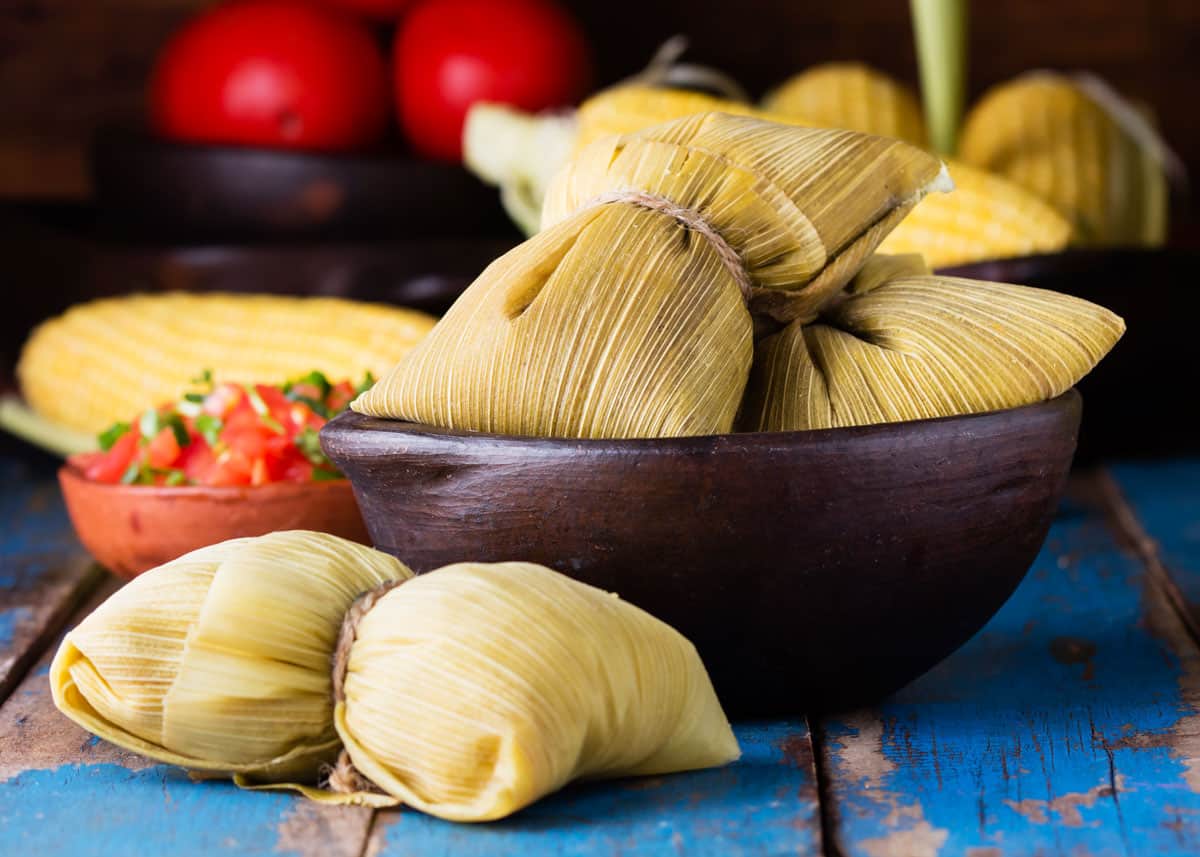
20 Bolivian Dishes
1. Salteñas
Let’s start this list with one of the Bolivian foods that is considered the national dish of Bolivia. Salteñas are savory stuffed empanadas. If you’ve never had an empanada, they are a pastry pocket containing a yummy filling.
In Bolivia that filling is typically either beef, pork, or chicken. Salteñas are juicy on the inside, like a stew, with ingredients like olives, raisins, and potatoes.
2. Ají de Lengua
Ají de Lengua is a spicy stew made with beef tongue. The tongue is boiled and sliced, then cooked with ingredients such as onions, hot chili peppers, tomatoes, and green peas. Spices include parsley, cumin, and oregano.
Served with potatoes and steamed rice on the side.
3. Charquekan
Originating in Oruro, Charquekan can now be found throughout Bolivia (and with various spellings). The key ingredient is beef or llama jerky.
The jerky is soaked, shredded, and fried in oil. It is then placed on top of a mountain of potatoes, corn, and cheese.
Try it with llajua, a spicy Bolivian hot sauce.
4. Chicharrón
You’ll find Chicharrón in many Latin American countries, and each has its own take on how to prepare it.
In Bolivia, Chicharrón is made with cubes of pork containing meat from the pork shoulder, and lots of fat.
The pork is prepared with oregano, cumin, garlic, pepper, and salt. It is first cooked in water and then fried in high heat. Lemon or beer may be added to complete the cooking process, to give the Chicharrón its crispy exterior.
Served with potatoes and mote (an Andean corn with giant kernels).
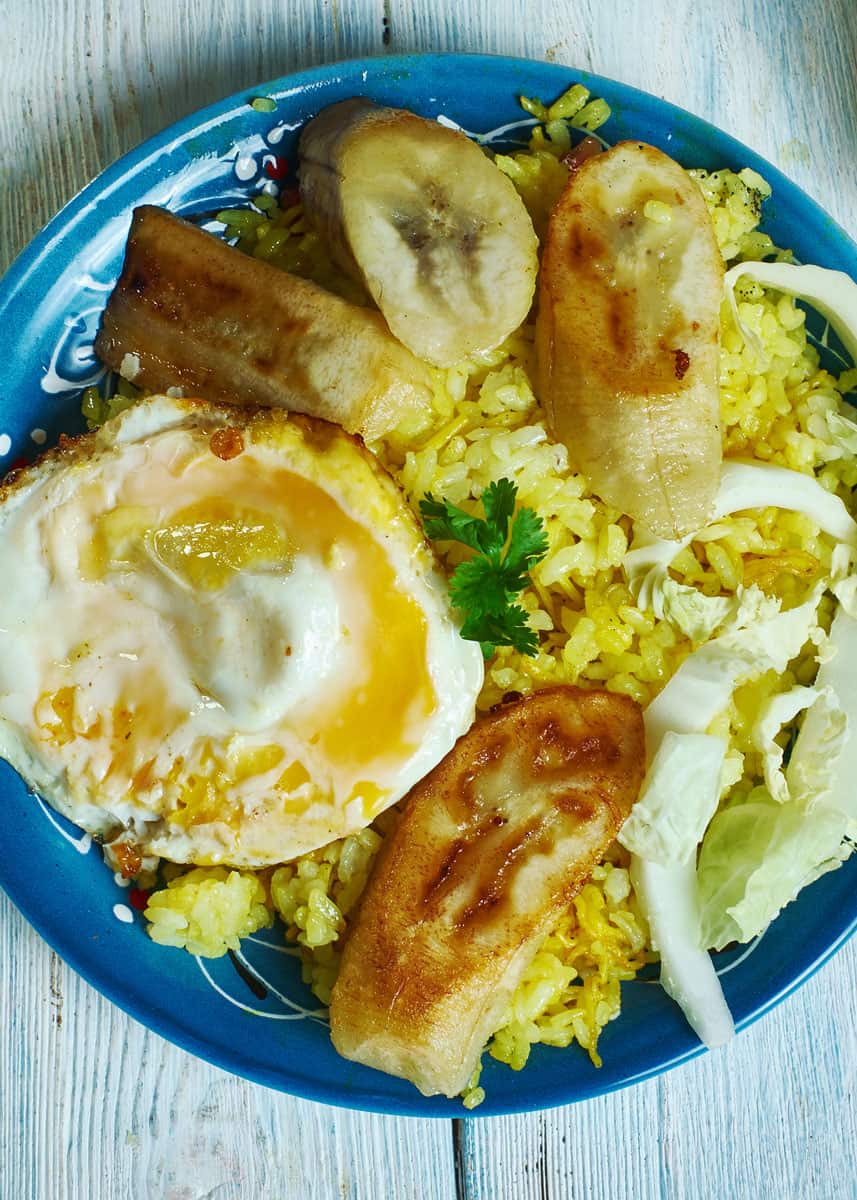
5. Majadito Batido
This is Bolivian fried rice, served with plantains to the side, and a fried egg on top. Chicken, duck, or beef may be used in the rice.
6. Fricasé
Caught somewhere between a soup and a stew, Fricasé is comfort food that’s also very filling. The main ingredients are spicy slow-cooked pork, potatoes, and white corn.
7. Picante de Pollo
Best translated as Chicken in Spicy Sauce, this creole recipe originates from the west coast of Bolivia.
The ingredients can be hard to replicate if you live somewhere other than Bolivia. One such ingredient is Chuño / Tunta, which is a dehydrated Andean potato. Another important ingredient is Aji Colorado, a type of chili pepper.
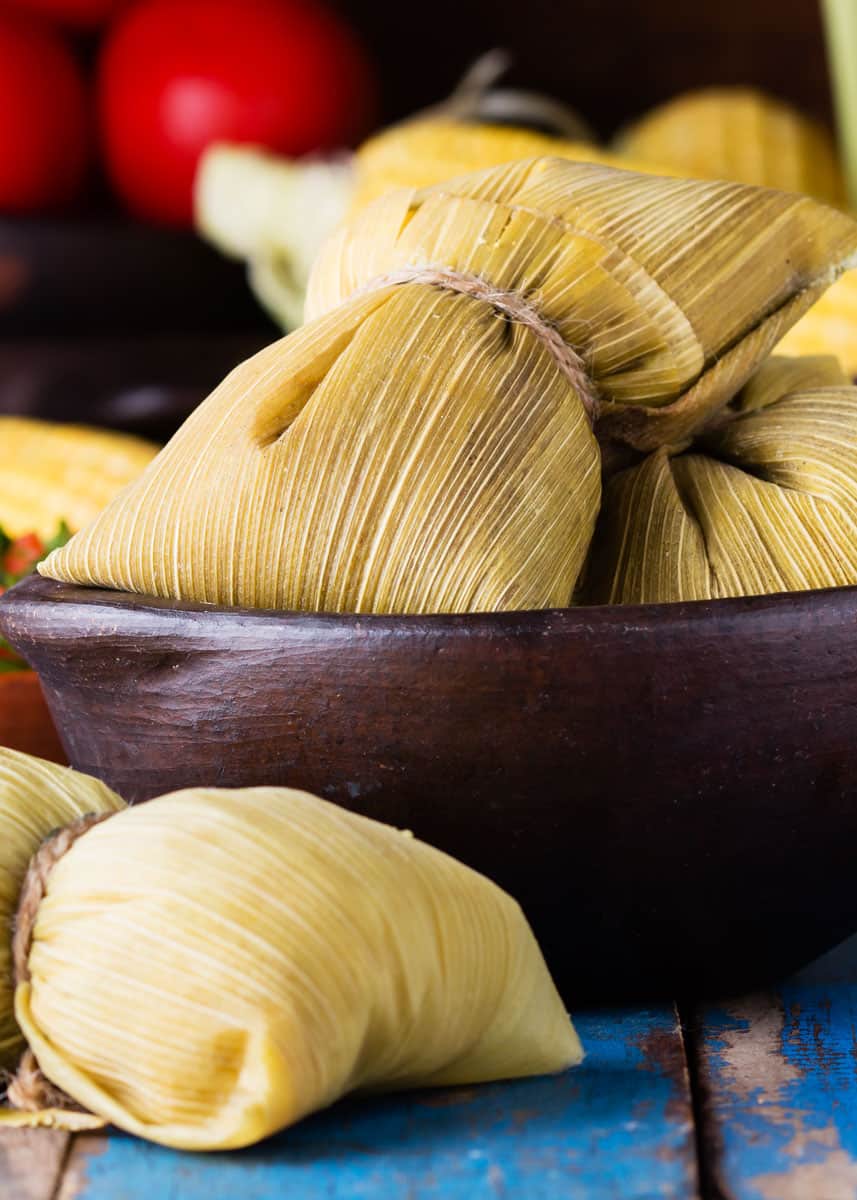
8. Humintas (or Humitas)
The first version of the Huminta dates back to the rule of the Incan empire. It highlights the importance of corn as a staple food. Not only is ground corn the main ingredient, it is also cooked inside of corn husks similar to a tamale.
The flavor is enhanced with the addition of anise seeds, sugar, and Bolivian cheese (which is dry and salty).
9. Masaco
One of the easiest recipes to prepare, Masaco is a salty snack that often accompanies an afternoon tea.
Depending on the region; plantains, bananas, or yucca may be used as the base. They are fried in oil until soft, and combined with crispy pork to form a ball. Served with grated white cheese on top.
10. Picana
Picana is a soup typically eaten around Christmas time in Bolivia. Various meats are used including chicken, beef, and lamb. There are also lots of vegetables like potatoes, pumpkin, carrots, and corn.
While each family has their own version of Picana, there must be at least two kinds of meat. Also, the broth must also contain both wine and beer.
11. Pique Macho
Created in 1974 in Cochabamba, this dish is now popular throughout the country. As the Macho in the name suggests, this is a huge dish meant to be shared. Or, if you’re super hungry you can try finishing it by yourself.
This heaping plate includes french-fried potatoes, sautéed beef, hot peppers, sausages, and condiments. A smaller (and often less spicy) version of this dish is simply called Pique.
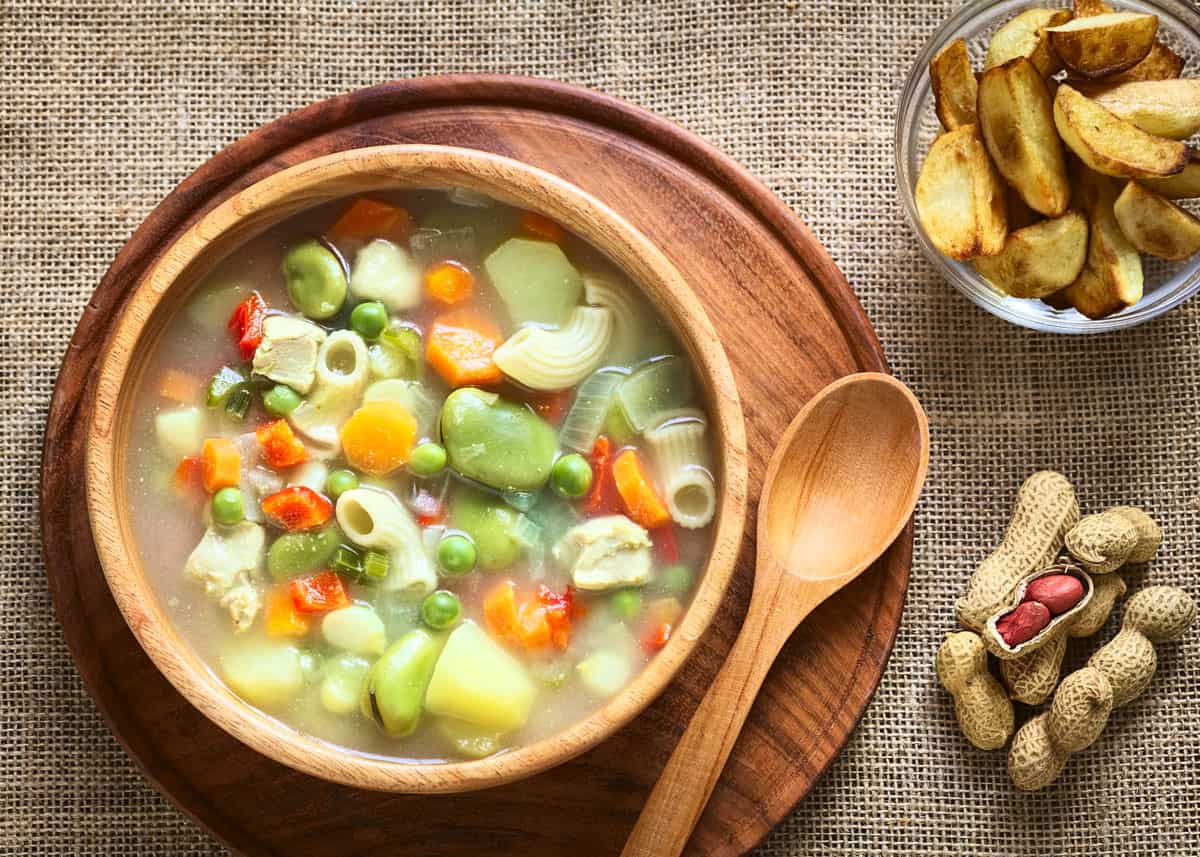
12. Sopa de Mani
This unique Peanut Soup is one of Bolivia’s most traditional soups. Thick and rich, it is prepared with peanuts, peas, potatoes, beef, and roasted macaroni. Seasoned with oregano and cumin.
Chopped parsley and french-fries are added on top as a garnish.
13. Cuñape
Cuñapes are delicious little cheesy bread rolls. They are made with yucca (tapioca) flour, meaning they are also gluten-free.
14. Silpancho
This is a dish of many layers. First, you have a layer of white rice, followed by a layer of sliced potatoes. On top of that is fried ground beef shaped into a steak. Then there is a fried egg or two. And finally, a pickled onion and tomato salad.
15. Api con Pastel
This one is both a drink (Api) and a food item (the Pastel) served together as a great pairing for breakfast. Api is a drink made with purple corn, cinnamon, water, and sugar. Served hot, it is perfect for a cold morning in the mountains.
The Pastel (or Pastel de Queso), is a fried pastry with cheese in the middle. It is sprinkled with icing sugar.
16. Sajta de Pollo
This chicken dish from the city of La Paz is eaten primarily at festival time (All Saints Day and Carnival). It is served with rice, dehydrated potatoes, and Sarsa (an onion and tomato salad).
17. Marraqueta
If you’re like me, you’ll love Marraqueta. It’s a crunchy bread bun made out of wheat flour. Perfect for breakfast or a mid-afternoon snack with your coffee. Enjoy with an egg or some local cheese.
18. Queso Humacha
If you love dairy, this is a soup that you must try. Thick and creamy, this soup includes corn, potatoes, milk, and lots of cheese. The spices used vary by region.
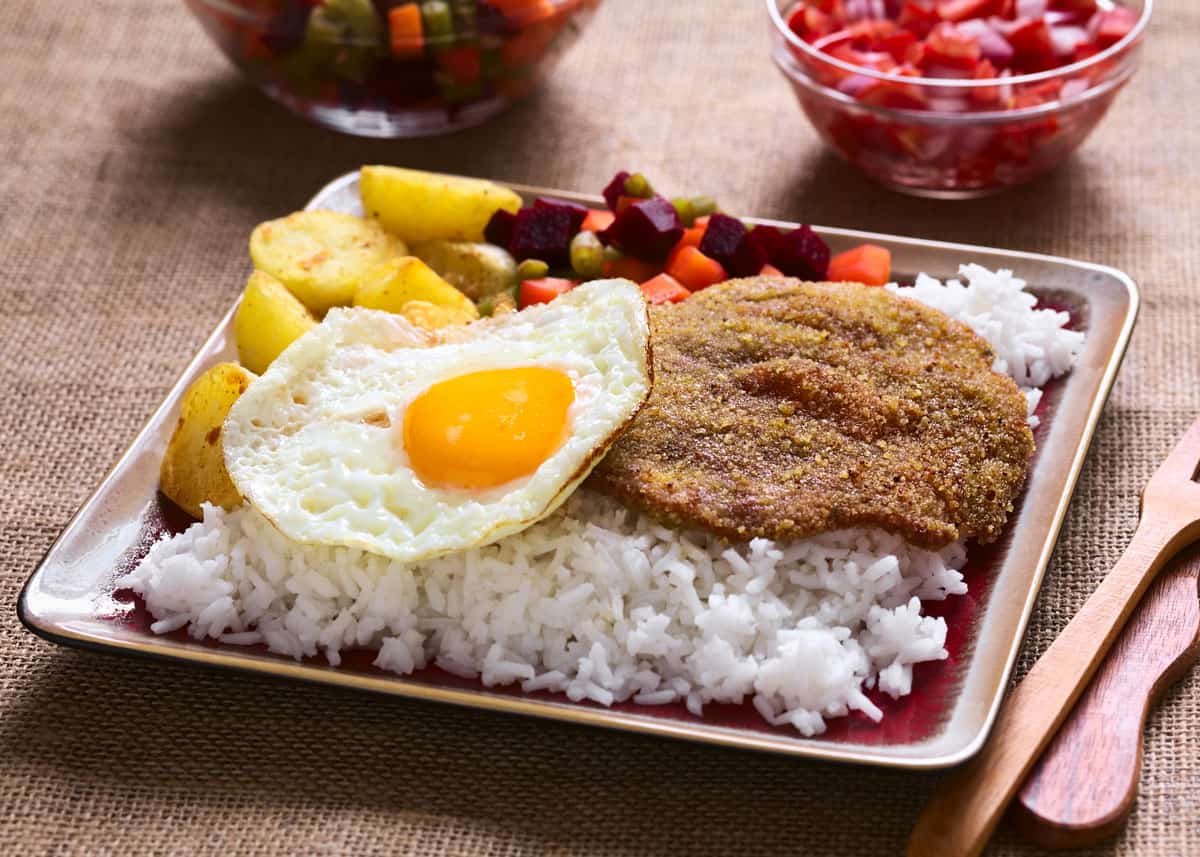
19. Falso Conejo
While the name Falso Conejo means Fake Rabbit, this dish neither looks nor tastes like rabbit. But it is delicious nonetheless. It consists of a meat patty, cooked with vegetables (such as tomatoes, peppers, onions, and carrots), served on a bed of white rice.
20. Brazuelo de Cordero
This dish is a well-cooked, flavorful lamb shoulder. Some sides may include rice, potatoes, and salad.
2 Bolivian Drinks
Bolivia has a wide assortment of drinks to quench your thirst. Whether it’s a hot coffee, freshly squeezed fruit juice, or something alcoholic that you’re after- you can find it here.
1. Singani
Distilled from white grapes, this liquor is produced only in the Bolivian high valleys. It is considered to be the National Liquor of Bolivia.
It is used in a variety of cocktails including Chuflay. It’s made using Singani, Ginger Ale or Sprite, and a lime wedge.
Yungueño is another popular cocktail using Singani, sugar, and orange juice.
2. Mocochinchi
From the Quechua word for dried peach, this beverage is made by boiling dried peaches together with sugar and cinnamon. As a bonus, the peach can also be eaten.
Interestingly, in 2012, the Bolivian government encouraged drinking more Mocochinchi as an alternative to Coca-Cola.
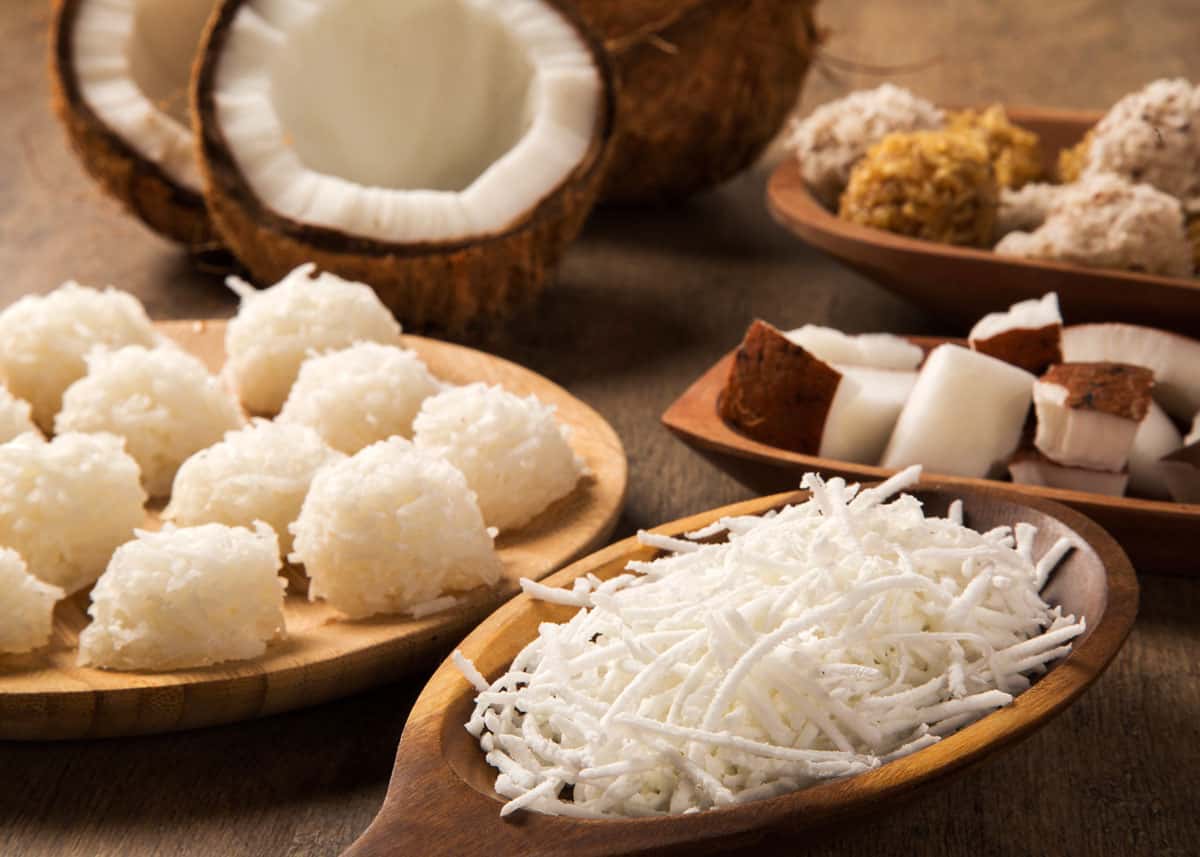
3 Bolivian Desserts
Here’s a short list of desserts in Bolivia to satisfy any sweet tooth.
1. Alfajores
These cookies are an absolute must-try during your stay in Bolivia. The best way to get them is fresh from a local bakery or street vendor.
Think of them as a cookie sandwich. The cookie part is tender and melts in your mouth. The inside layer is made with Dulce de Leche, which is like a caramelized condensed milk. Yum.
2. Cocadas
These treats are made by combining shredded coconut, condensed milk, and an egg. Baked in an oven until golden brown.
3. Helado de Canela
This is a frozen treat flavored with cinnamon, perfect for those who can’t have dairy. What it does contain is water, lots of sugar, cornstarch, red food coloring, and real cinnamon and lemon juice. Sold by many street vendors, it’s the perfect way to cool down on a hot day.
Learn more about popular Chilean foods, located to the west of Bolivia. Or travel north and try these Cuban foods.
Your Turn
Have you been to Bolivia? What is your favorite dish, drink, or dessert? If you’re planning a trip (or have a Bolivian restaurant in your neighborhood), which Bolivian foods are you going to try first? Or why not try them all? Leave your thoughts in the comments below.

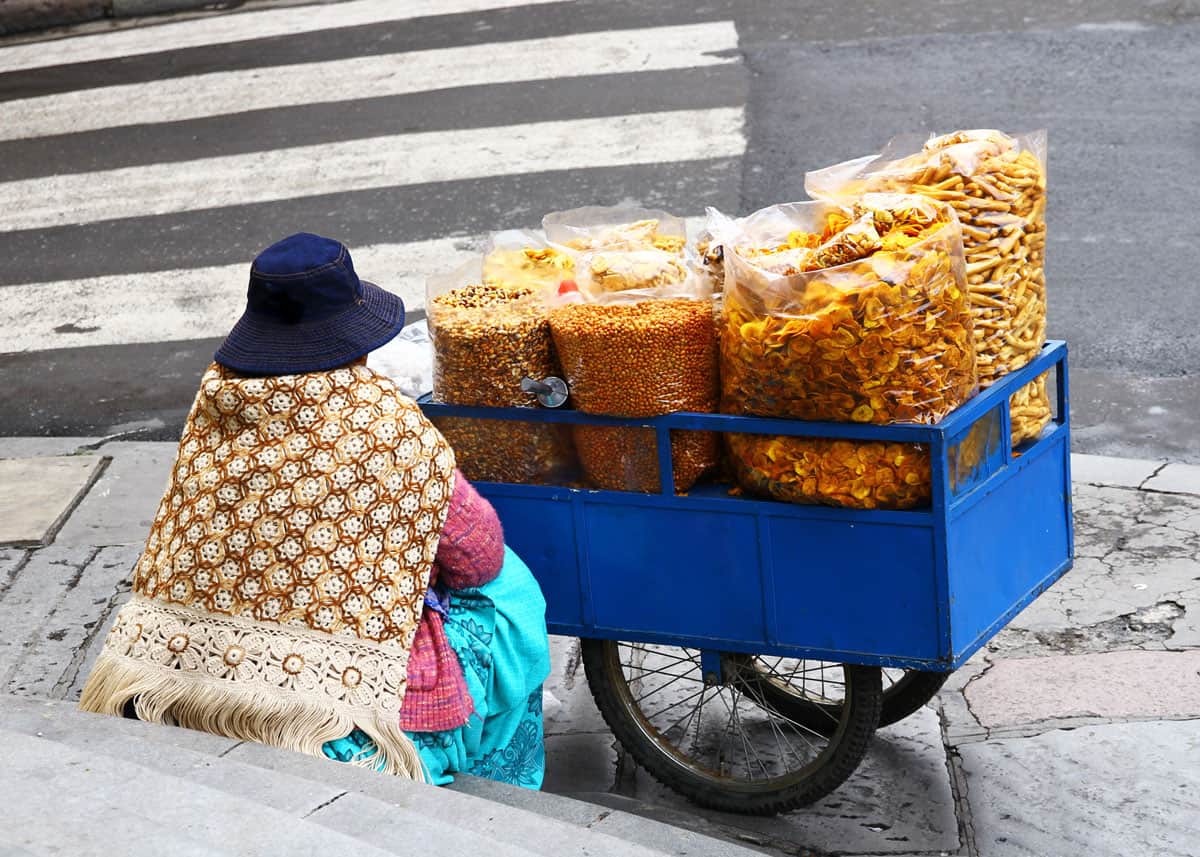
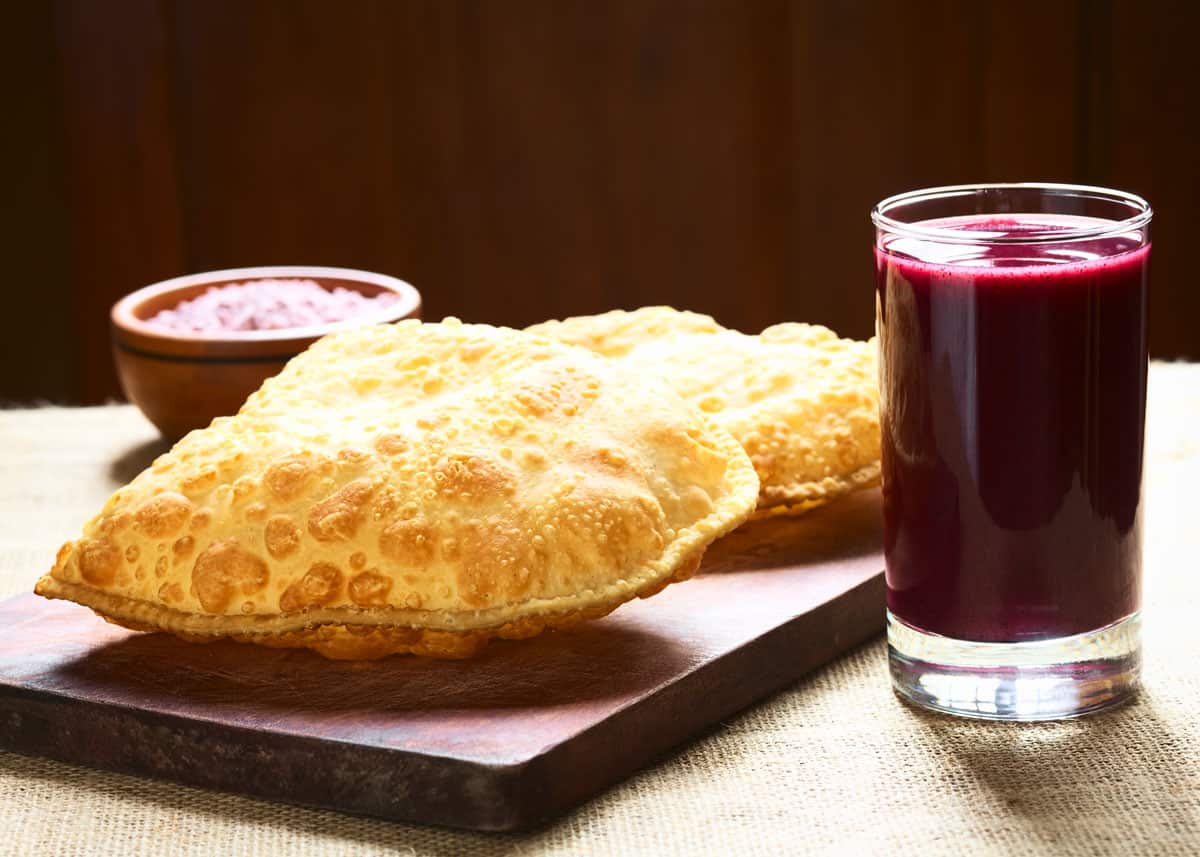
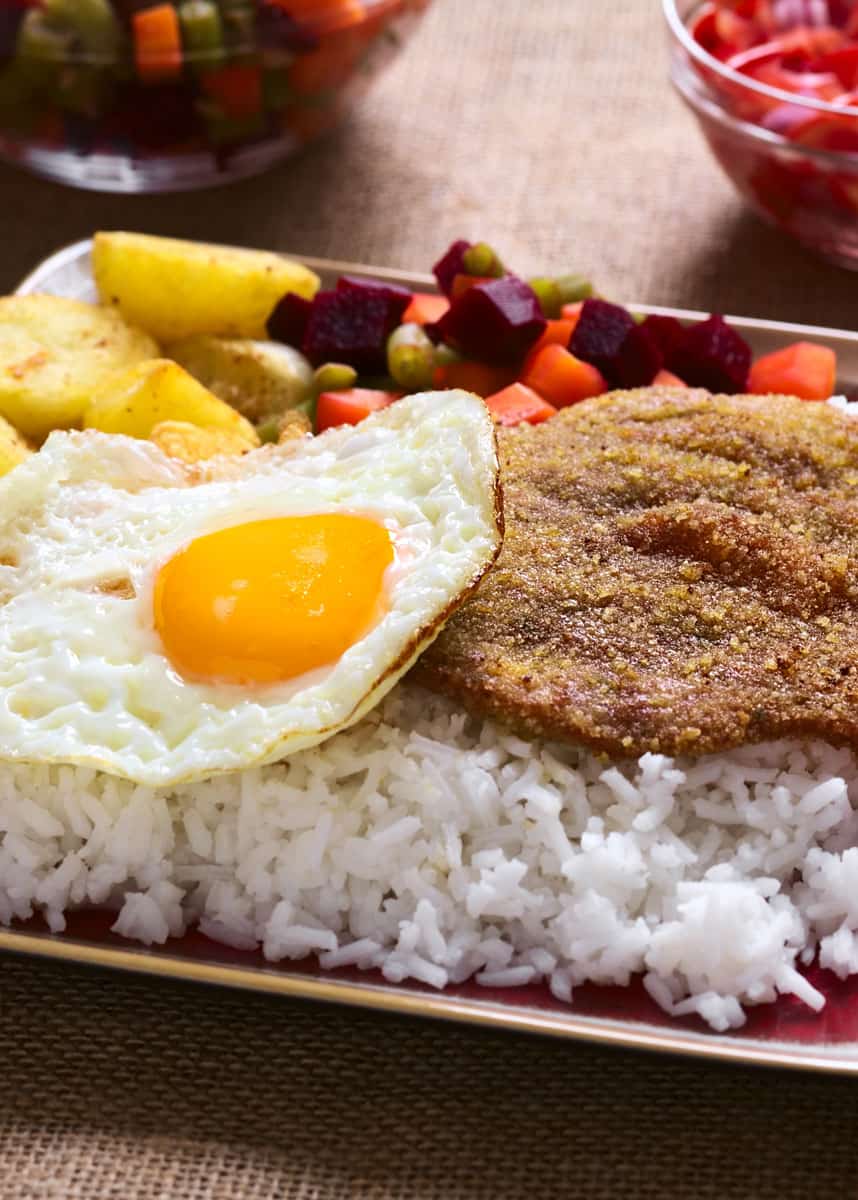
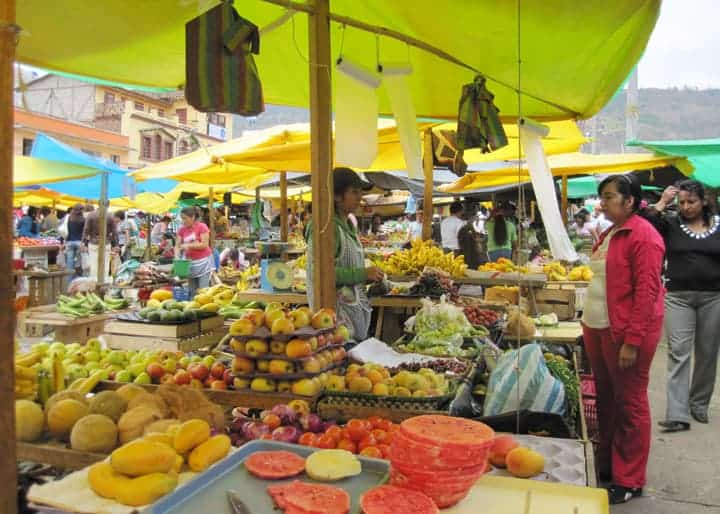
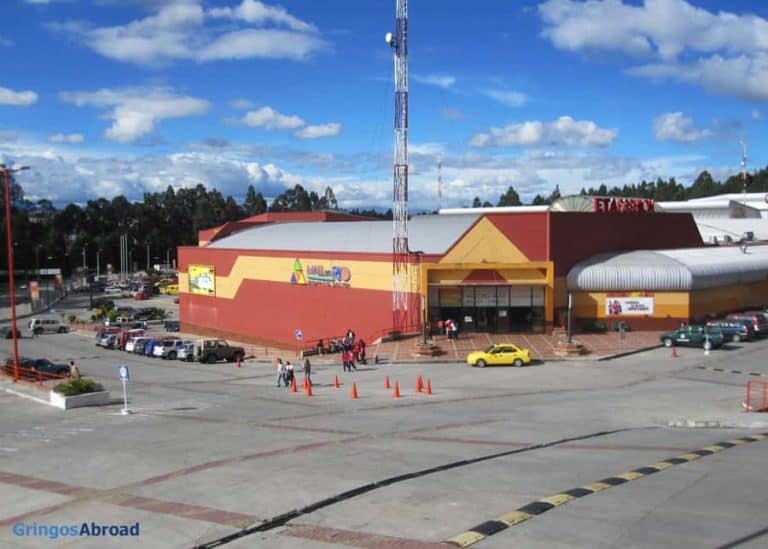
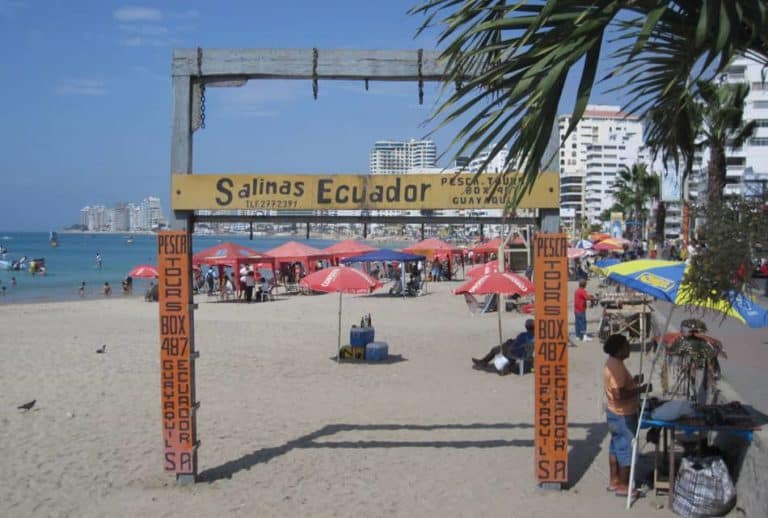
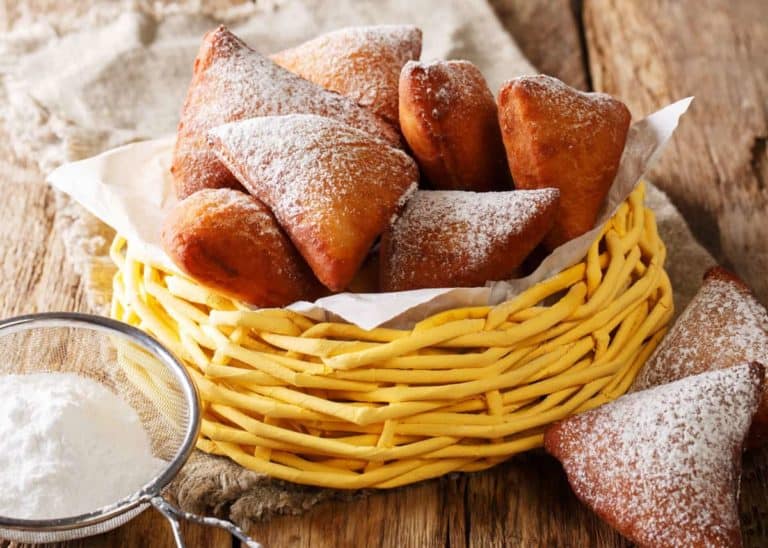


What aout exotic meats: guinea pig, alpaca, native wild game, etc.?